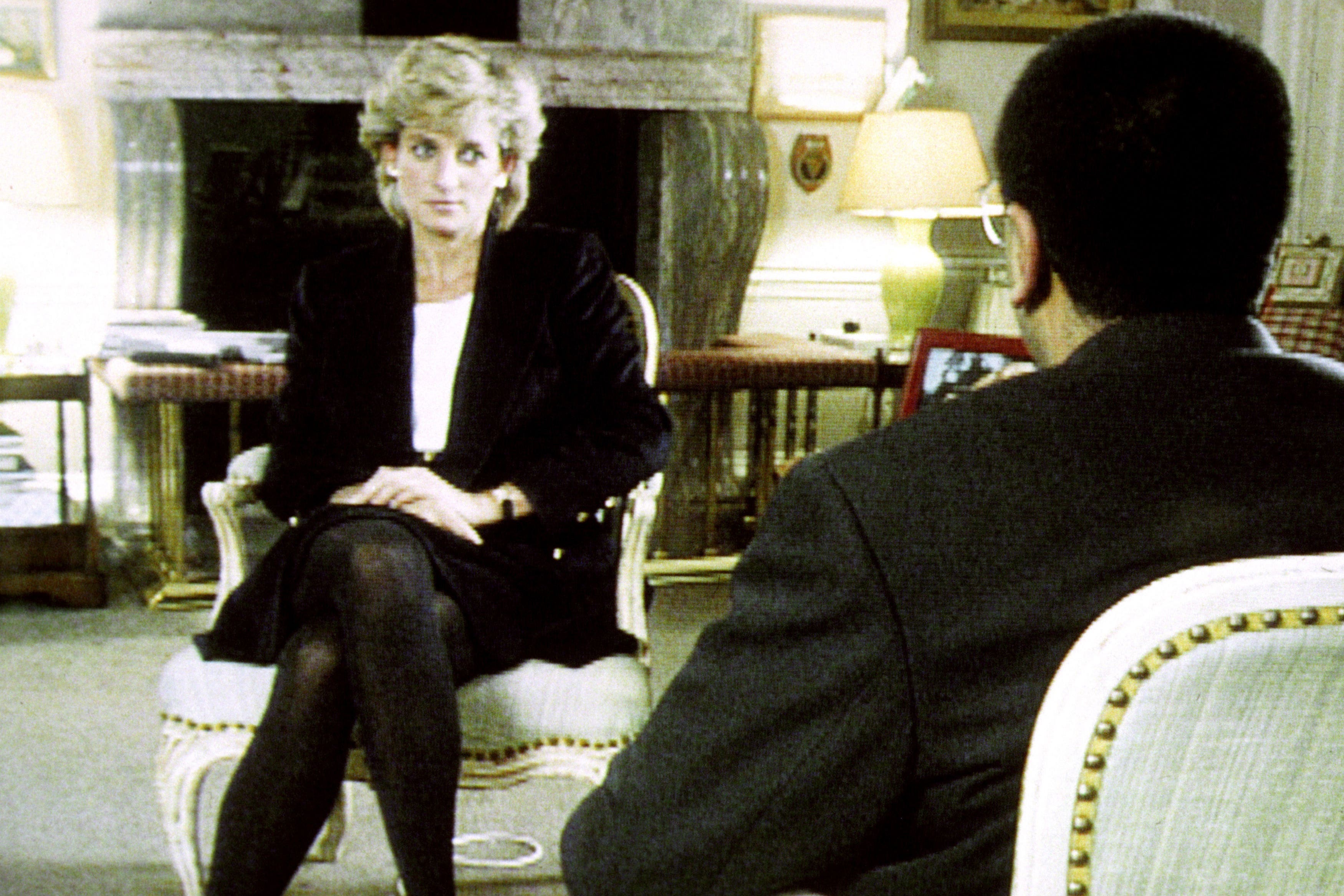BBC set to redact some emails judge ordered to be released over Bashir scandal
A judge told the broadcaster to hand over the material earlier this month following a freedom of information request by a journalist.

Your support helps us to tell the story
From reproductive rights to climate change to Big Tech, The Independent is on the ground when the story is developing. Whether it's investigating the financials of Elon Musk's pro-Trump PAC or producing our latest documentary, 'The A Word', which shines a light on the American women fighting for reproductive rights, we know how important it is to parse out the facts from the messaging.
At such a critical moment in US history, we need reporters on the ground. Your donation allows us to keep sending journalists to speak to both sides of the story.
The Independent is trusted by Americans across the entire political spectrum. And unlike many other quality news outlets, we choose not to lock Americans out of our reporting and analysis with paywalls. We believe quality journalism should be available to everyone, paid for by those who can afford it.
Your support makes all the difference.The BBC is expected to redact some of the almost 3,000 emails it must release about its handling of the Martin Bashir scandal, a tribunal has heard.
A judge told the broadcaster to hand over the material earlier this month, two-and-a-half years after journalist Andrew Webb used freedom of information (FOI) laws to ask to see it.
The scandal, over how Mr Bashir secured a Panorama interview with Diana, Princess of Wales in 1995, emerged after the former BBC head of news Lord Hall of Birkenhead suggested in a confidential briefing that Diana’s brother Earl Spencer had given Mr Bashir bank statements.
Mr Bashir was in “serious breach” of the broadcaster’s producer guidelines when he faked bank statements and showed them to Mr Spencer to gain access to Diana in 1995.
Diana famously told the BBC journalist in the interview: “There were three of us in this marriage so it was a bit crowded.”
A remote information rights tribunal heard on Friday that the BBC intended to use section 42 of the Freedom of Information Act, which covers “confidential communications” between a client and their lawyer, as well as other provisions in the legislation to stop full disclosure of some of the emails.
Mr Webb told the hearing: “We all know that some documents, roughly 300, will be claimed by the BBC to be withheld under section 42.”
He said earlier: “I have been waiting two-and-a-half years for these documents.
“We have been told this whole mass of data was initially meaningless, irrelevant and nothing to do with a cover-up etc. The BBC has been fairly forcefully told that is not good enough.
“The whole … let’s call it Bashir scandal, (happened because) 11 words appeared in a mass of emails.”
Jason Pobjoy, representing the BBC, told the hearing “a huge amount of work” had been done reviewing the material and that the broadcaster was “very, very anxious” to avoid appealing the judge’s decision.
This is not giving us free rein just to redact without consequence. (The BBC is) only claiming when there is a legitimate exemption that applies
He said of expected next steps: “We provide all the documents. The BBC then has two weeks to provide submissions on any exemptions, which I think primarily will be submissions on section 42.”
He added that other exemptions would also be relied on and said that, in a bundle of around 400 emails which had been looked at, a “significant number” contained “third-party personal data” such as email addresses and phone numbers.
The lawyer said: “This is not giving us free rein just to redact without consequence.
“(The BBC is) only claiming when there is a legitimate exemption that applies.”
The BBC must hand over the documents by January 24 and, if any are redacted, Mr Webb must be told which exemptions the broadcaster relied on to come to that decision.
Full submissions about why they were redacted would be provided two weeks later.
Mr Webb can challenge any of the redactions if he wishes and, if he does so, the tribunal will be able to access the unredacted emails when coming to a decision on whether they should be disclosed in full.
Judge Brian Kennedy said that if Mr Webb did challenge any of the redactions, the case was “right open at the starting point again”.
The judge added that he was “pleased with the co-operation that seems to be emerging” between Mr Webb and the BBC as he adjourned the case to a date to be fixed.